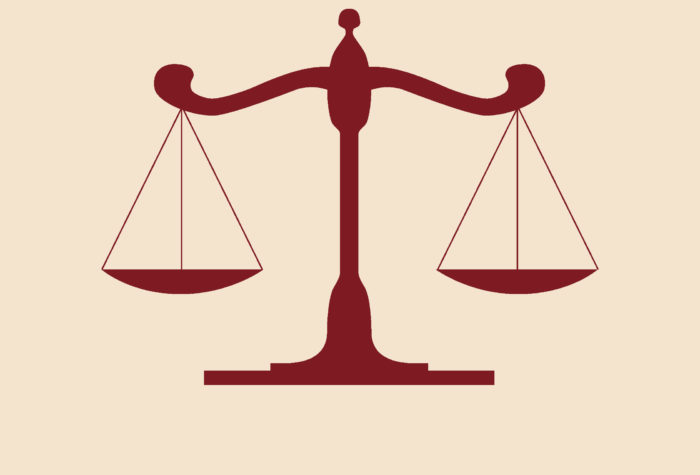Two Extreme Christian Views about Social Justice
I want to consider the stories Christians teach one another about social justice. Yet it turns out, my first attempt at this comes from nine years ago.
It’s surprising, first, how much I actually agree with 2010 Stephen, and second, how little things have changed.
I find this just when I was beginning to imagine, “Wow, things really are worse now than before, aren’t they?”
Imagine fuzzy, crackling black-and-white fast-motion 1920s comedy film footage over the following process:
- Hosts of professing Christians get comfortable with their easy lives. They’re satisfied with their blessings. They appreciate any benefits obtained from a stable country, and lifestyle, based on some Biblical truth.
- The next generation of professing Christians comes along. Of course, they’re likely the children of the above generation. But they get sick of apparent easy-living Christianity, and its lack of emphasis on caring for the poor and destitute. They cry, Christ came to bring Social Justice! and they talk a lot about this.
- In reaction to them, more Christians get sick of that. They dismiss Social Justice as just a bunch of liberal talk.
- All sides get together on the internet. Sometimes they even connect in person. They commence to yell at each other.
- People from either sides switch to either more “liberal” or “conservative” views. Each “side” has children, or other protégés, to teach their views.
- (Repeat as many times as desired.)
On which of the two “sides”—or an overlapping viewpoint—do you fall?
Scripture doesn’t let Christians get away with either extreme view. Neither does pastor and author Kevin DeYoung. In 2010, he wrote a short blog series to encourage Christians not to fall off into one ditch or the other. DeYoung cautions: Don’t base your view on what the Other Side is or isn’t saying or doing. Instead, we must have biblical balance:
#1: Don’t Undersell What the Bible Says About the Poor and Social Justice
In recent years there’s been so much talk about the poor and social justice that some conservative Christians, especially if that conservatism is political as well as theological, are tempted to tune out any time a well-intentioned evangelical chastises the church for neglecting “the least of these.”
. . . But there actually is a lot in the Bible about the poor, even more if you expand the category to include wealth, money, possessions, and justice.
. . . Because we have been given grace in Christ, we ought to extend grace to others in his name. Tim Keller is right: ministering to the poor is a crucial sign that we actually believe the gospel.1
But now, for those closer to the the-church-hasn’t-done-enough-for-the-poor side of things:
#2: Don’t Oversell What the Bible Says About the Poor and Social Justice
Just as some Christians are in danger of over-reacting against social justice, other Christians, in an effort be prophetic, run the risk of making the Bible say more about the poor and social justice than it actually does.
. . . Some Christians talk . . . as if the story from Genesis to Revelation is largely the story of God taking the side of the poor in an effort to raise the minimum wage and provide universal health care. As we tried to show earlier, the biblical narrative is chiefly concerned with how a holy God can dwell with an unholy people.2
Moreover, when the Bible references the “poor,” it’s sometimes talking about those righteous people, God’s people, who are humble and waiting on him, and may or may not be economically poor. Scripture encourages Church members to take care of their own poor first, DeYoung notes. After that comes seeking justice in the world—though knowing that only Jesus brings justice.
Seven Scriptures often used to support social justice
DeYoung also went through seven common Scripture passages that are often used to support notions of “social justice” in secular society. He shows how such texts can’t be taken out of the context of God’s redemptive history and used for mere social improvement. He also addresses many truths about what Scripture actually does say.
My contention is that these passages say more and less than we think, more about God’s heart for justice than some realize, and less about contemporary “social justice” than many imagine.3
I wish DeYoung would adapt this series into a book. We actually need this now more than we did in 2010.
- Isaiah 1: Can we take God’s condemnation of Judah then and apply it to our society now?4
- Isaiah 58: Does Scripture support the belief that we ought to resolve wealth inequities as “social justice”?5
- Jeremiah 22: Whom did God critique—Judah’s rulers, or all Judah’s people? If so, what for?6
- Matthew 25: 31–46: When Jesus describes caring for “the least of these,” who does he mean?7 (If you read any of these articles, read this one. It’s the first place I heard it clarified, with Biblical balance yet careful exegesis, that “the least of these” has a more-specific meaning.)
- Amos 5: Back in the Old Testament—who defines real “justice,” God or modern-day activists?8
- Micah 6:8: Does Scripture here vaguely endorse improving society, or outline specific injustices?9
- Luke 4: 16–21: Did Jesus claim he came to Earth to focus on “the materially destitute and the downtrodden . . . to bring the year of jubilee to the oppressed . . . to transform social structures and bring God’s creation back to shalom” (as opposed to that whole dying-on-the-Cross business)? Or did he mean something else here: not helping the downtrodden achieve justice in this world, but sinners to awake from their spiritual death and delight in himself?10
- Kevin DeYoung, “A Brief Wrap Up on The Poor and Social Justice,” The Gospel Coalition, Aug. 5, 2010. ↩
- Ibid. ↩
- DeYoung, “Seven Passages on Social Justice (1),” The Gospel Coalition, Feb. 25, 2010. ↩
- Ibid. ↩
- DeYoung, “Seven Passages on Social Justice (2),” The Gospel Coalition, March 3, 2010. ↩
- DeYoung, “Seven Passages on Social Justice (3),” The Gospel Coalition, March 11, 2010. ↩
- DeYoung, “Seven Passages on Social Justice (4),” The Gospel Coalition, April 13, 2010. ↩
- DeYoung, “Seven Passages on Social Justice (5),” The Gospel Coalition, April 29, 2010. ↩
- DeYoung, “Seven Passages on Social Justice (6),” The Gospel Coalition, May 27, 2010. ↩
- DeYoung, “Seven Passages on Social Justice (7),” The Gospel Coalition, July 20, 2010. ↩













Share your thoughts, faithful reader (and stay wholesome!)